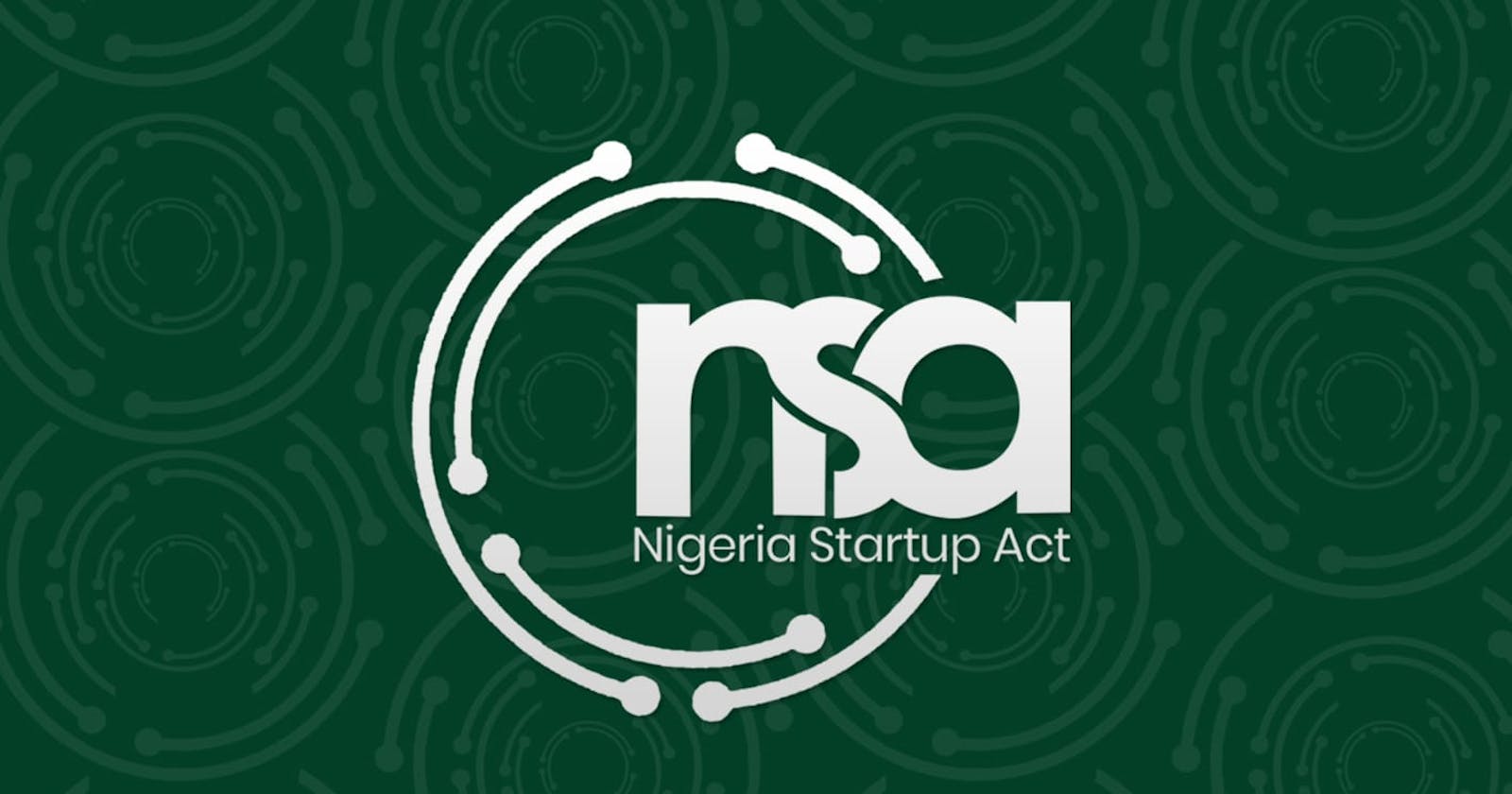The Nigeria Startup Bill is now The Nigeria Startup Act: 5 things you must know
The Nigeria Startup Act was recently passed by the National Assembly and is assented to by the President of the Federal Republic of Nigeria today, 19 October 2022. As a legal mechanism for supporting the Nigerian tech industry, the Act contains some laudable provisions that could change the way Nigerian startups do business and interact with regulators.
Here are 5 notable things that every startup founder should know about the Nigeria Startup Act
1. STARTUP LABELLING
The Startup Act provides incentives and benefits for 'labelled' startups and certain service providers. To enjoy the benefits under the Act, a company must apply —to the startup portal— to be labelled as a startup. Only companies (and other business entities) that meet the following requirements will be granted the startup label:
a registered company (or a partnership/sole proprietorship) that has not existed for more than 10 years;
a company that carries out an endeavour that has to do with a digital technology product or process; and
a company that has at least one Nigerian founder or co-founder who holds shares in the company
NB: Holding companies or subsidiaries of existing companies cannot qualify as startups even if they meet the preceding requirements.
2. FUNDING FOR STARTUPS
The Act establishes a Startup Investment Seed Fund -managed by the Nigerian Sovereign Investment Authority- that will be used to provide funding to early-stage startups, and provide relief to technology laboratories, accelerators, incubators and hubs. Additionally, the Startup Seed Fund shall have a fund manager whose primary responsibility is to ensure training and capacity building for startups and talent development through curriculum improvements with the NUC for Nigerian universities
3. TAX & FISCAL INCENTIVES
- A startup with a minimum of 10 employees 60% of which have either no form of experience or have less than 3 years post-graduation experience shall enjoy 5% tax relief
- The Secretariat shall ensure access to export facilities, government grants, loans and facilities
- The Secretariat will establish a credit guarantee scheme that will provide accessible financial support to startups, and create a framework for credit guarantee.
- Incentives and reliefs to investors –Investors get a 30% tax credit of the amount invested and Capital gains tax shall not be charged on the gains accruing from the disposal of assets by an investor
- Employees – 35% tax exemption for personal income tax 2 years from the date of engagement
- Foreign entities Service providers will only pay 5% withholding tax
4. SUPPORT WITH LICENSING AND REGULATORY COMPLIANCE
The Secretariat shall collaborate with the Corporate Affairs Commission, the Central Bank of Nigeria, Nigerian registries of Copyright, Trademarks, Patents and Designs, Security and Exchange Commission, National Office for Technology Acquisition and Promotion to designate a separate section on the Startup Portal to ease the process of applying for licences, certifications and protection of intellectual property. For example, the CBN is to cooperate with the Council to make the process of repatriation of funds and application for FinTech licences easier, and the SEC is to cooperate with the Council to make the process of seeking crowdfunding for startups easier.
5. REGULATION OF STARTUPS
- The Act establishes the National Council for Digital Innovation and Entrepreneurship (the Council). The Council has the primary responsibility of formulating and implementing the policy guidelines for the realisation of the objectives of the Act, which the Council. Implementation of the Council’s directives and regulations is carried out by the Council’s secretariat and the Portal Coordinator.
- A company that has been granted the startup label must comply with the obligations provided for under the Act, such as providing information on the number of human resources¸ total assets and annual turnover; reporting any change in the corporate structure; filling annual report of incentives received etc.
- The Coordinator of the Startup portal can withdraw the startup label where a startup fails to meet any of its obligations under the Act
- The Secretariat shall also set up the Startup consultative Forum made up of members of the startup ecosystem and the Nigeria Computer Society. The Forum is to provide a platform for information sharing and collaboration in the Nigerian Startup ecosystem.
- The Secretariat shall establish accelerator and incubator programmes and shall collaborate with existing accelerators and incubators. It shall also establish guidelines for regulating the relationship between accelerators, incubators and startups. The Council shall issue a framework for the establishment of clusters, hubs and parks
If you require clarification on any aspect of the Act you can email info@acornandmustard.com
